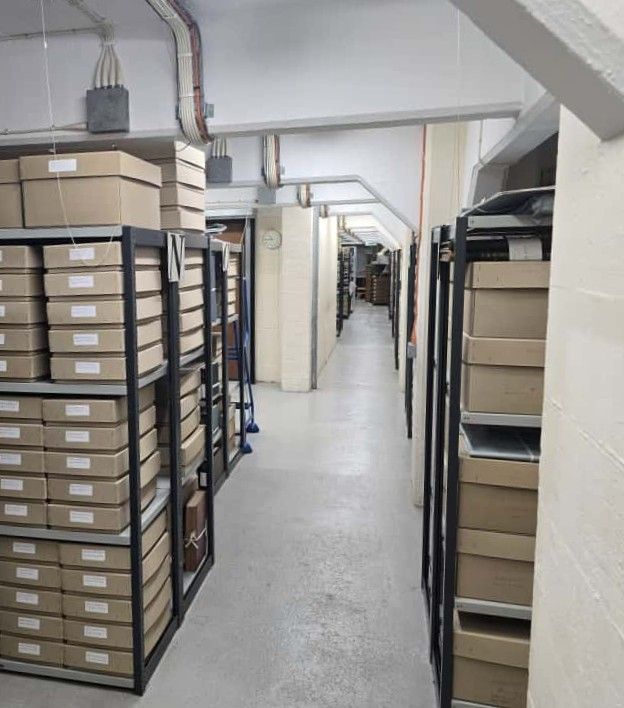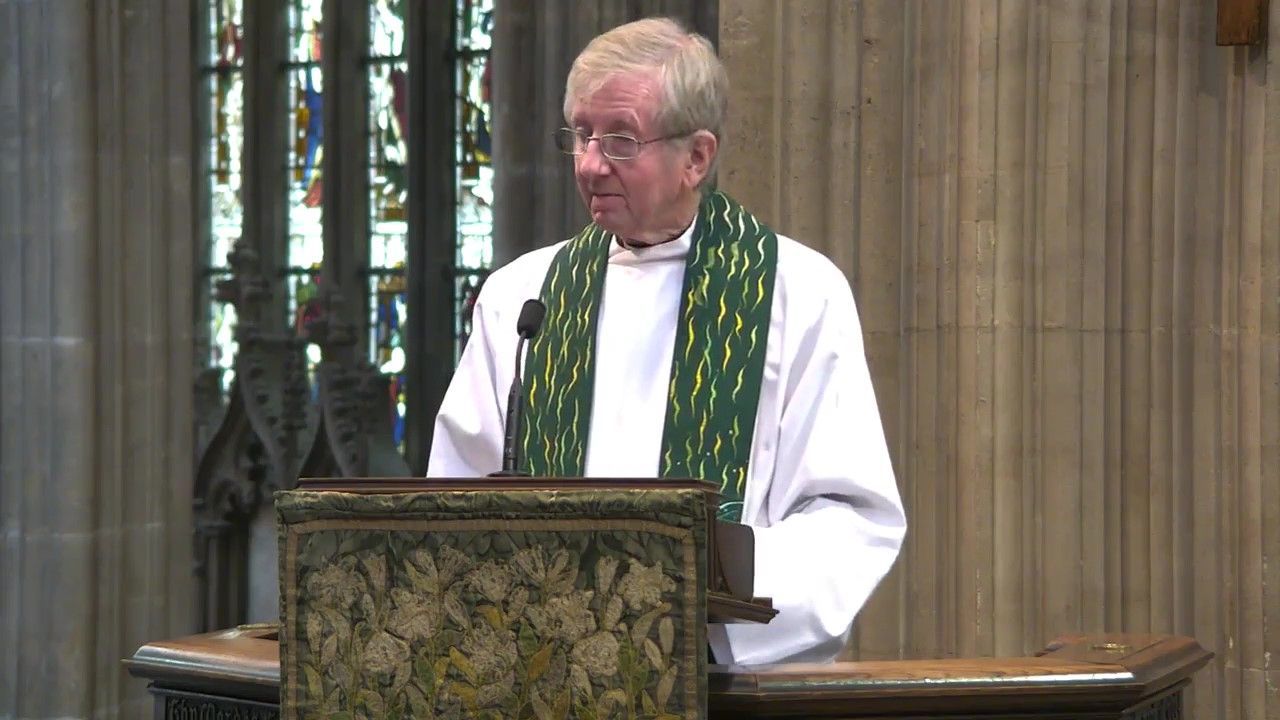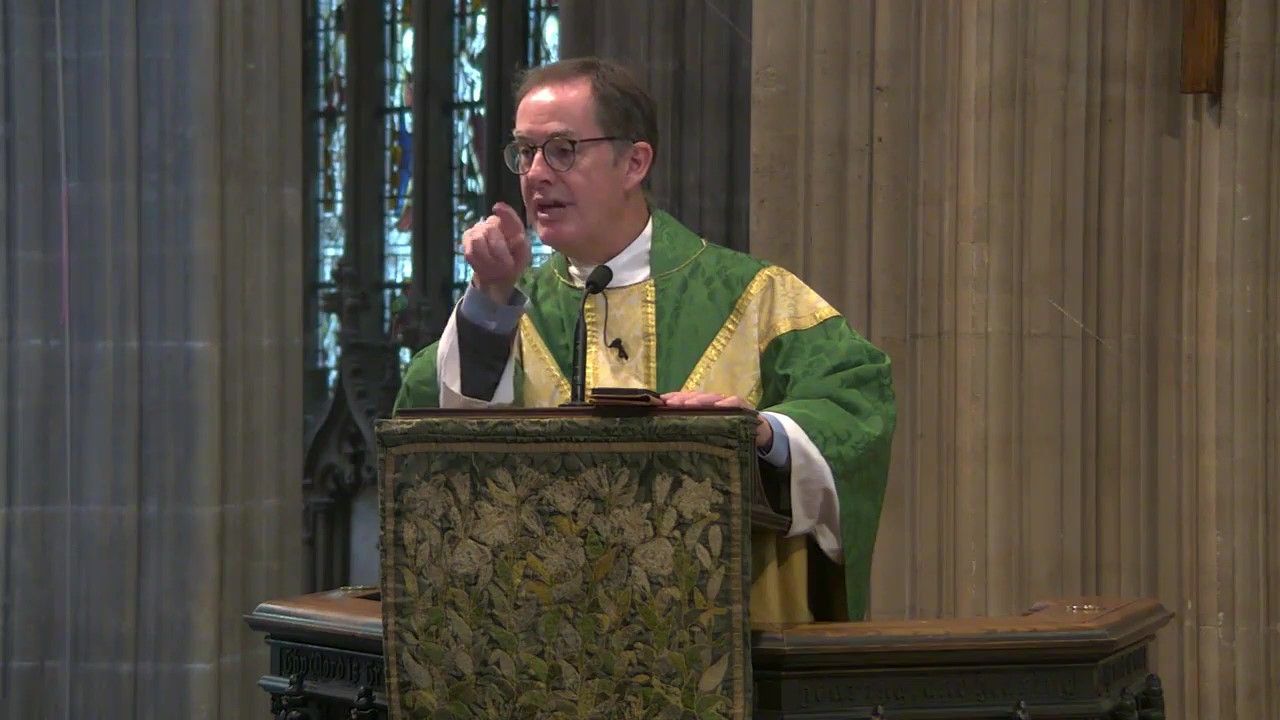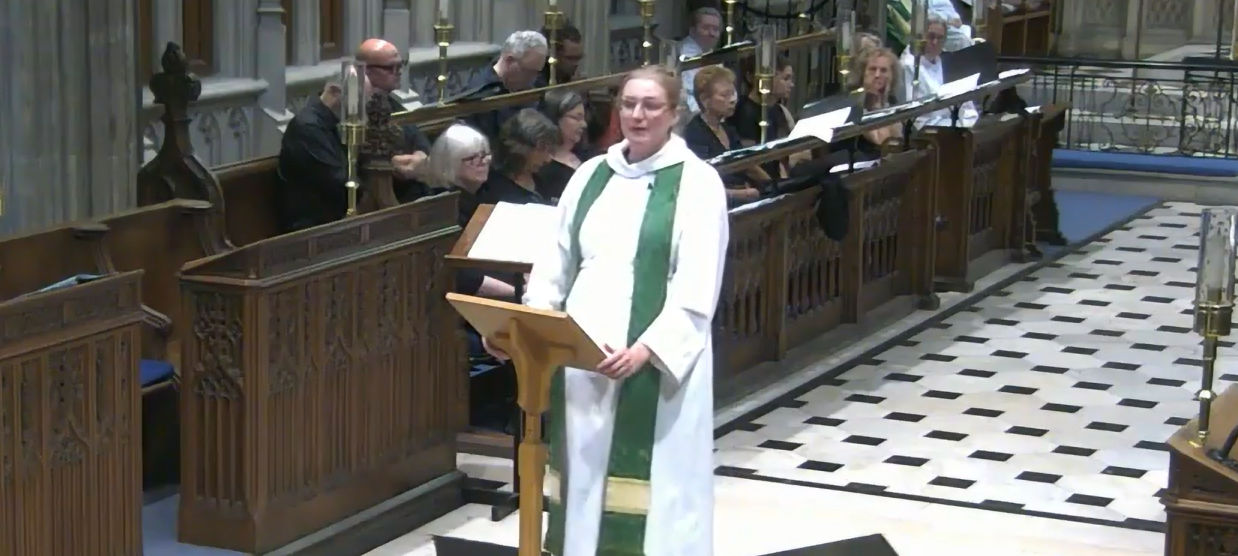Blessed are you .... Woe to you
I mentioned in an earlier one of these that, in the ordination service, bishops commission priest "to teach and to admonish" and on Sunday we see where the idea might have come from. For those who value teaching over admonishing you might like to (as they say when football scores are about to be shared just before Match of the Day) look away now. This Sunday's gospel has Jesus surrounded by a crowd of disciples and a multitude of people from across Judea and as far away as Tyre and Sidon ... and that's a stretch of some 250 miles of Mediterranean coastline. He has just spent the night on the mountain in prayer, at the end of which he gathers his disciples (presumably a great crowd) and names twelve of them who will become known as Apostles.
Having chosen his top team (more successful than the recent English cricket tour of Australia, let's hope!) he comes down the mountain and, speaking to all his disciples, he names the blessings we recognise from the version in Matthew's gospel. But then he carries on and moves from teaching about blessings to admonishing those who are rich now, who are full now, who are happy now and who are thought well of now. For those of them - for those of us - enfolded into this group by our wealth, our lifestyle, our humour, our place in society, we are left dangling. Words that will come later as we head towards the Passion of Christ might ring in our ears: Do you mean me, Lord; Surely, not me, Lord!
But, in the cold light of day, there appears to be no place to hide, no escape route, no conscience clause: you will be hungry; you will weep; you will mourn.
However, there are two significant points to make here.
There is a pattern in the blessings and the woes. The second, third and fourth of each points to a future outcome, where the hungry will be filled and the weep will laugh; where the full will be hungry and those who laugh will weep. On the other hand, the first ones are in the present tense and point to the situation as it is now: blessed are the poor for theirs is the kingdom of God; woe to the rich for they have had their blessing.
For my second point you have to look beyond this week's text to the next section of chapter 6 of Luke's gospel. We're still in the same place, with the same crowd and it's still Jesus speaking. And his very next word, after saying "for that is what their ancestors did to the false prophets" is "but ...
"But" suggests an alternative way of looking at things. More than that it clearly indicates that this week we cut Jesus off mid-train-of-thought. Pedantic linguists might argue we're cutting him off mid-sentence as I seem to remember being taught that it is unacceptable to start a sentence with "but": but then again, we have to remember we are not looking at this in the original language nor with their sense of grammatical correctness!
These are the blessings, some for now and some for a future; these are the woes, some for now and some for a future; but I say to you that listen, Love your enemies, do good to those who hate you, bless those who curse you, pray for those who abuse you. And do to others as you would have them do to you.






